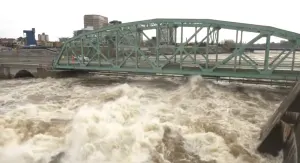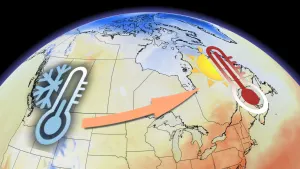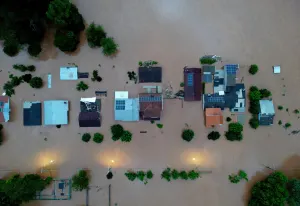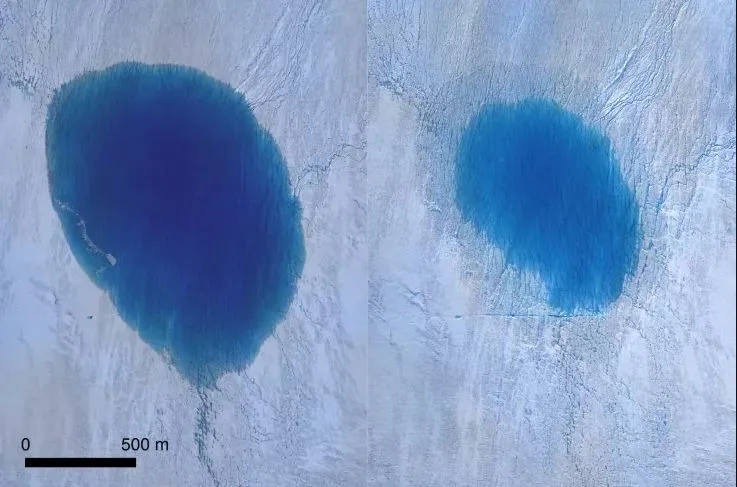
Glacier lost 2,000 Olympic pools' worth of water in 5 hours
The researchers say meltwater drainage may be happening much faster than originally thought, raising concerns about eventual sea-level rise.
Glacial lakes are losing their water at a much faster rate than originally thought, with a likely significant effect on ice sheet dynamics and loss, according to scientists at Cambridge University in the U.K.
They're making that claim after drone surveillance of a glacier in Greenland from 2018 revealed it lost an enormous amount of water in a short period of time: 4.8 million cubic metres, the equivalent of around 2,000 Olympic swimming pools, over the course of just five hours.
Glacial lakes that form in the summer are temporary affairs, fuelled by meltwater destined to drain through fractures into sub-glacial caverns leading beneath the ice sheet. Given how thick the ice sheet is, the temporary waterfalls that ensue can be hundreds of metres tall.
For the glacier in question, located in northern Greenland, the researchers observed the drainage process through several drone passes, when a fracture that had formed the previous year intersected with the lake and triggered the drainage process. They observed the ice sheet was actually lifted up slightly by the sheer volume of meltwater, and moved somewhat faster, from three metres a day to five metres per day.
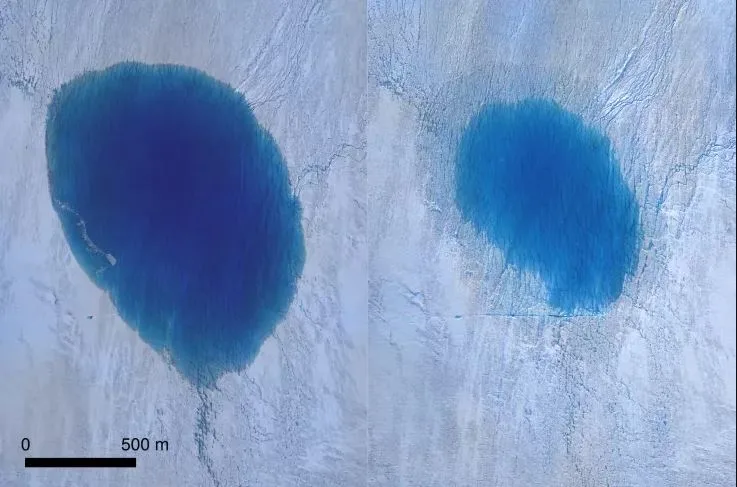
Before and after image of temporary meltwater lake. Credit: Thomas R. Chudley.
“It’s possible we’ve under-estimated the effects of these glaciers on the overall instability of the Greenland Ice Sheet,” lead author Tom Chudley said in a release from the university. “It’s a rare thing to actually observe these fast-draining lakes – we were lucky to be in the right place at the right time.”
The research was published last week in the journal Proceedings of the National Academy of Sciences.
Greenland has been in the headlines more than once this year due to the ongoing melt of its ice sheet, and its expected impact on global sea-level rise.
An early start to the melt season resulted in a viral image of a dogsled team having to slog across ankle-deep meltwater, looking as if they were mushing on water. By the summer, the melt had become so widespread that Greenland lost an unprecedented 10 billion tonnes of ice in just one day, according to some estimates.








